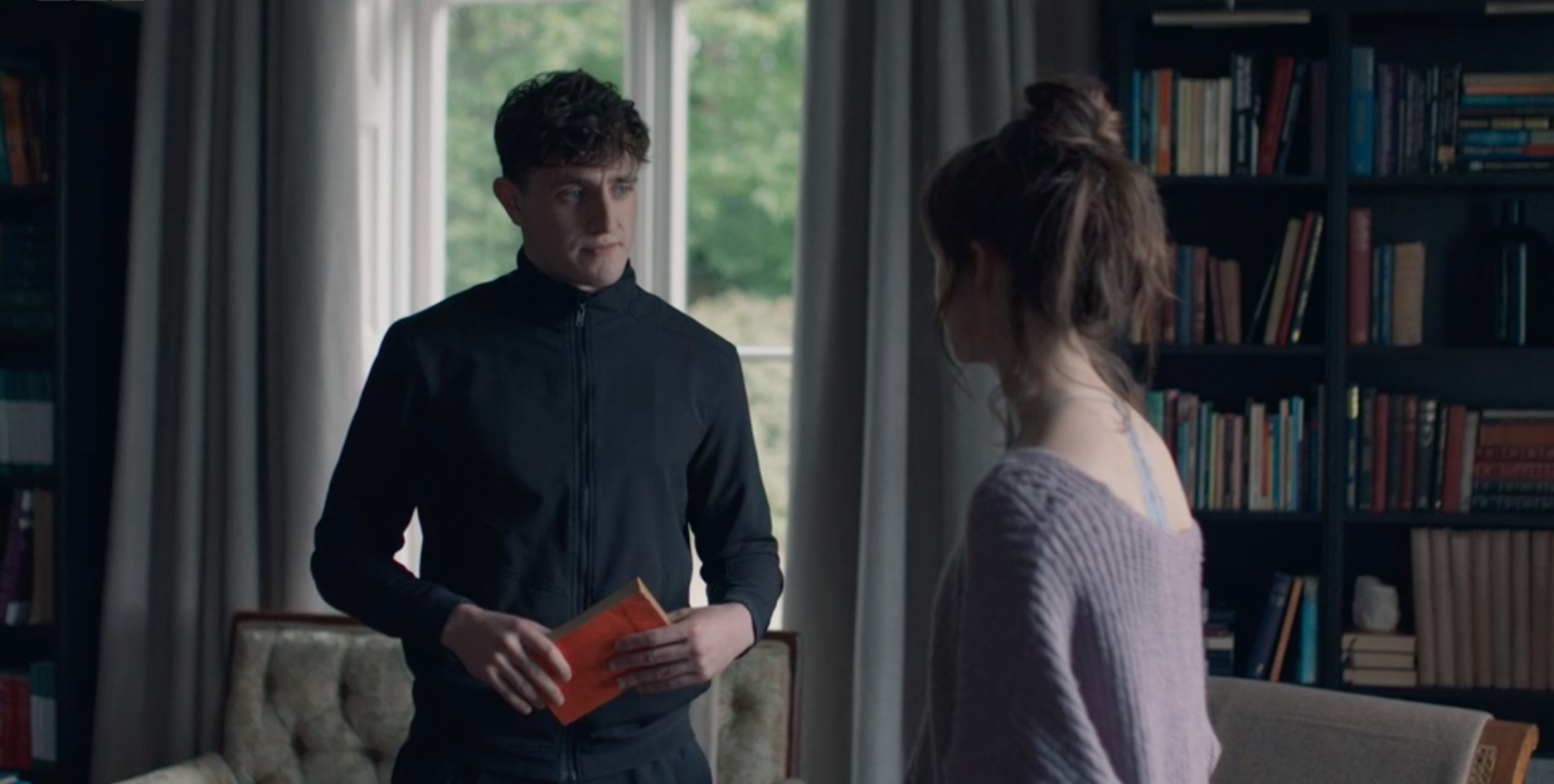When it was announced last year that Sally Rooney’s second novel, Normal People, would be adapted into a BBC and Hulu television series, the excitement was more than tangible. With this excitement, however, came much trepidation. The book is a brilliant will-they-won’t-they tale of love between Irish young adults, Marianne and Connell, and has been met with a huge tide of critical acclaim: Rooney was quickly dubbed as the “voice of a generation” for her ability to capture the zeitgeist in sharp, deceptively simple prose. Normal People became, in short, a very beloved book, and the task of translating this onto screen would be anything but easy.
Thankfully, readers had no need to be anxious. Directors Lenny Abrahamson (Room, The Little Stranger) and Hettie Macdonald (Howards End, Beautiful Thing) have delivered a series that is as tightly controlled as it is expansive, with the twelve half-hour episodes spanning four years of Marianne and Connell’s relationship. The adaptation is impeccably faithful to the novel with much of the dialogue lifted verbatim, and unlike most television series today, maintains the linear narrative of the book. Normal People is a story that lends itself well to this episodic format, and the result is a stunning achievement: each episode feels like a short story within itself, presented in an exquisite, easily digestible thirty minutes.
Despite Rooney’s involvement in the writing of the series (alongside Alice Birch), the series is most definitely an adaptation, not a recreation. Transposing Normal People to screen is a challenge, not only because the majority of the novel is grounded in the interior monologues of characters. Sometimes, these are simply shifted into speech – Marianne confesses aloud to Connell that she has watched him on the football pitch and thought of him in a sexual way – but most of this introspection is conveyed in facial expressions and meaningful glances, the camera guided by the directors’ expert eyes. “At times Connell has the sensation that he and Marianne are like figure-skaters, improvising their discussions so adeptly and in such perfect synchronisation that it surprises them both. She tosses herself gracefully into the air, and each time, without knowing how he’s going to do it, he catches her,” Rooney writes. Connell is describing here the conversations he shares with Marianne, but it’s an apt description for how their dialogue makes the jump to screen. Every line flows perfectly, as if improvised; as viewers, we put our blind faith in the actors to be tossed into the air and caught again.
And the acting is, helpfully, superb. The decision to cast Connell (Paul Mescal) and Marianne (Daisy Edgar-Jones) as relatively unknown actors is a smart one. It allows Rooney’s story to do what it is best at doing: to offer us a refreshing glimpse of a tale we already know, the old refigured in the new. Edgar-Jones gives us a more than credible insight into the complexities of Marianne’s character, and despite hailing from North London, skilfully showcases a near-authentic accent. Mescal, however, is the true breakout star here. It is difficult to believe that this is the actor’s screen debut, for such a tender, excruciatingly measured portrait of modern masculinity. The scene in which Connell breaks down in front of a university therapist is unbearable to watch – it is so movingly captured by Mescal.
Some elements, however, did not do justice to the book. Marianne’s dark path into sexual masochism was far from convincing, and much more fleshed out in the book as an integral part to her character development. The series, which had previously established itself to not flinch away from anything (the sex is awkward, the lad-culture ugly), then skirts around the subject of Marianne’s abuse from her brother Alan. Slamming the door on her nose, Alan’s violence can easily be mistaken for an accident. In the book, however, Rooney writes that “Not for the first time Marianne thinks cruelty does not only hurt the victim, but the perpetrator also, and maybe more deeply and more permanently.” The complexities of bullying are far more compellingly portrayed in the school scenes, or in the nastiness of Marianne’s insecure boyfriend, Jamie (Fionn O’Shea).
Nonetheless, it is a near-perfect adaptation. Viewers of Normal People are destined to fall into two camps: those who were lovers of the book, and those who come to the story afresh on a wave of curiosity and internet hype. Both will leave immensely moved, nostalgic, and touched by the small beauty of this series. It demands to be watched.



